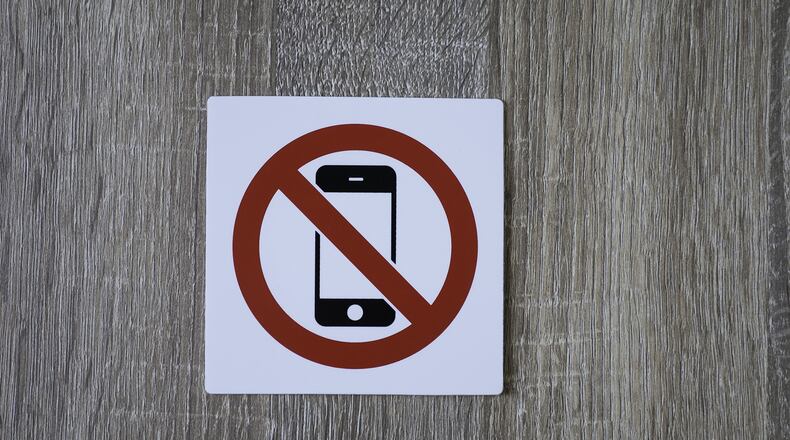A bill that bans the use of cellphones in Georgia’s public schools for students in kindergarten through the eighth grade is heading to Gov. Brian Kemp to sign into law, after sailing through the General Assembly this month.
House Bill 340, sponsored by State Rep. Scott Hilton, R-Peachtree Corners, is called the Distraction-Free Education Act. It gives schools until January 2026 to adopt a way to keep students from accessing personal electronic devices — including smartphones, smartwatches, tablets and headphones — during the school day. Students with disabilities or a medical need would be allowed to access their devices.
State senators overwhelmingly voted in favor of the bill Tuesday. It passed in the Georgia House of Representatives three weeks ago.
“This is not about taking phones away, it’s about putting phones away so they’re not a distraction in the classroom,” said Sen. Jason Anavitarte, R-Dallas, on Tuesday.
With the passage of this bill, Georgia joins a growing list of states that restrict the use of cellphones in schools.
A number of schools in metro Atlanta — including Midtown High School, middle schools in Marietta and a selection of schools in DeKalb County — have been testing out cellphone bans this year. So far, they like it. Parents, administrators and teachers have reported that kids are more engaged and are having fewer behavior problems during the school day. Students have mixed feelings about the new rules.
“The evidence is clear: One of the biggest threats to academic performance, student mental health and public safety are cellphones in our schools,” Anavitarte said.
Despite the early results locally, a recently published study out of England questioned whether cellphone bans are the fix. After looking at 30 schools, 20 of which restricted cellphone use, the researchers found no difference in students’ mental well-being if cellphone use was restricted in school. The study did find that students’ mental well-being decreased when they spent more time on their phones or on social media — but it questioned whether school cellphone bans were able to lower the overall amount of time students spent on the devices.
“If we can pass this, a lot of the measures we have in terms of measuring the health of our children will go up,” said Sen. Sally Harrell, D-Atlanta.
Some lawmakers questioned whether the ban would make it harder for parents to check on their children during emergencies, like the Apalachee High School shooting in September. Parents at the time reported getting texts from their children about an active shooter at the school more than 10 minutes before the school sent out any information.
But proponents of the bill argued that in an emergency situation, it is safer for students to pay attention to their teachers and to law enforcement than be on their phones, and said that every school in the state is required to create and follow emergency communication plans.
About the Author
Keep Reading
The Latest
Featured


